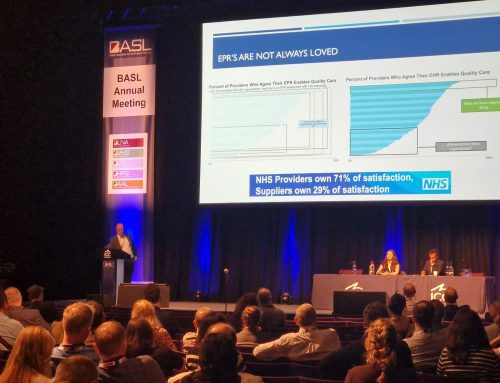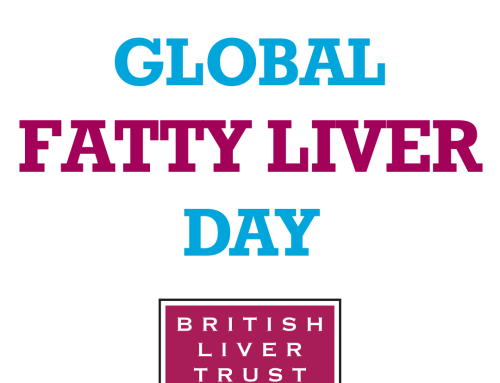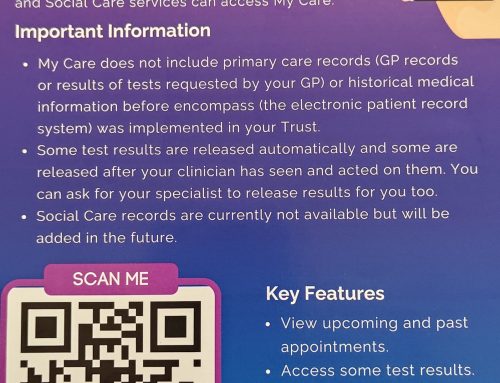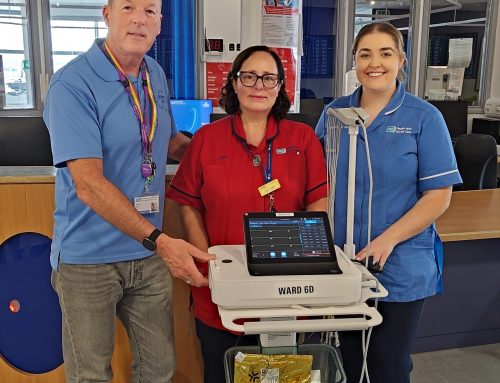
The RVH Liver Support Group recently made a donation to the RVH Liver Unit as it investigates the possibility of bringing “Enhanced Liver Fibrosis” testing to N Ireland. In the article below Dr Leanne Stratton, a hepatology consultant in the RVH leading the research, explains what it all means for patients here.
About the ELF test
The “ELF” test is a blood test, also known as the “Enhanced Liver Fibrosis” test. This blood test is a panel which measures 3 separate blood markers of scar damage (fibrosis) in the liver: hyaluronic acid (HA), procollagen III amino-terminal peptide (PIIINP), and tissue inhibitor of matrix metalloproteinase (TIMP-1). This blood test panel isn’t currently available in Northern Ireland.
NICE Guidelines 2016
The ELF test was mentioned in NICE (National Institute for Clinical Excellence) guidelines for non-alcoholic fatty liver disease (NAFLD) in 2016 as a way to determine if there is any significant scar tissue in the liver. One in four adults in Europe has evidence of fatty change in their liver, but not all of these patients will develop scarring in their liver secondary to fat, and not all will need seen by a hepatologist.
The NICE guidelines suggest that the ELF test may be used in adults who have a diagnosis of NAFLD to determine if there is any evidence of advanced fibrosis. These guidelines suggest that, for patients who have an ELF score of 10.51 or above and NAFLD, they can be considered to have advanced fibrosis. For patients with an ELF score of less than 10.51, they are unlikely to have advanced liver fibrosis, and should be reassessed at 3 yearly intervals.
Current practice in RVH Liver Unit
In the RVH Liver Unit, patients are risk-stratified using the “NAFLD score” – this is a blood panel score taking into account recent liver bloods, platelet count, body mass index (BMI) and presence of diabetes. For patients who are “low risk” on this score, they can be managed in primary care, addressing any relevant risk factors (weight, high blood pressure, diabetes, high cholesterol or sedentary lifestyle). For patients who are of “indeterminate” or “high” risk, they are generally offered a Fibroscan and a clinic appointment in the service.
Fibroscans and current challenges
One of the current challenges in the Liver Unit, is with regards to demands on the Fibroscan service. The Fibroscan can be used across lots of different causes of liver disease to help assess for fibrosis. Some conditions, such as chronic hepatitis B, require an interval Fibroscan every few years as per guidelines, which adds to the demand on the resource. Our current waiting time for a routine Fibroscan in Belfast is in excess of two years. Over 25% of patients who are waiting for a Fibroscan have NAFLD. For many years, the only Fibroscan machine in Northern Ireland was in Belfast, and so our waiting list still holds patients from other Trusts who were referred before each Trust had their own scanner.
Another challenge of the Fibroscan can be the difficulty in obtaining accurate readings in patients who are morbidly obese – an increasing challenge that we face in our clinics. There is also currently a four year waiting time for routine clinic appointments in the hepatology service – yet another challenge that we are aiming to address.
Potential solutions
We are keen to explore other ways to “risk-stratify” our patients, so that patients who are at the highest risk of significant fibrosis are seen quickly, and those who are low risk can be given appropriate lifestyle advice and discharged back to the care of their GP. We are currently working on a pathway for new NAFLD referrals into the service, development of a nurse-led first assessment clinic for NAFLD, and educations sessions for GPs across Northern Ireland. As part of this work, we have been keen to explore whether the addition of ELF testing would help to risk-stratify patients, to enable more timely access to the service to those in highest need, and to reduce demand on the Fibroscan service.
RVH Liver Support Group
We have been very grateful to the RVH Liver Support Group for a very kind donation of £2,000 in 2022 to run a pilot study of ELF test feasibility. With collaboration between our laboratory scientists, phlebotomy hub, Ninewells (Dundee) biochemistry labs, and our specialist hepatology nurse Jessica Brown, we have been able to invite 40 patients with “indeterminate NAFLD” scores for ELF tests which cost £50 per patient. This has only been possible with the support of the RVH LSG. This pilot is currently underway and results will hopefully be available and collated by the end of January 2023. This will allow us to assess whether the introduction of ELF testing will be of benefit in the risk-assessment of new NAFLD patients referred into the service. If it appears to be useful, it will give us the information that we need to approach commissioners to ask for funding for this service for patients in Northern Ireland.




